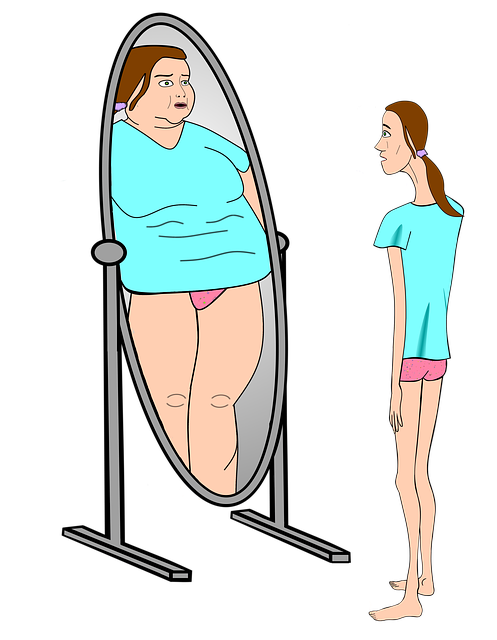Binge eating disorder (BED) is a complex chronic condition characterized by excessive food intake, loss of control, and emotional distress, significantly impacting daily life and causing various physical, emotional, and social issues. Recognizing its signs is crucial for seeking support. Effective treatments include cognitive-behavioral therapy (CBT), interpersonal therapy (IPT), support groups, and professional guidance from dietitians or healthcare providers. Recovery involves structured routines, positive relationships, CBT to modify thought patterns, and a comprehensive approach for long-term success.
Uncontrolled binge eating disrupts lives, hindering normal functioning and straining relationships. This pervasive issue, known as Binge Eating Disorder (BED), impacts daily routines, social dynamics, and overall well-being. Understanding BED involves recognizing its complex nature and the underlying factors contributing to episodes of excessive eating. This comprehensive article explores the multifaceted effects of BED, offering insights into its impact on daily life, interpersonal relationships, and providing guidance on seeking help and implementing strategies for recovery and rebuilding healthy habits.
- Understanding Binge Eating Disorder: A Comprehensive Overview
- The Impact on Daily Life and Routine
- Interpersonal Relationships and Social Dynamics
- Seeking Help and Support for Recovery
- Strategies to Rebuild and Maintain Healthy Habits
Understanding Binge Eating Disorder: A Comprehensive Overview

Binge eating disorder (BED) is a complex condition characterized by recurrent episodes of excessive food intake, leading to feelings of loss of control and distress. It’s more than just occasional overeating; it’s a chronic pattern that significantly impacts an individual’s life. People with BED often experience a rapid consumption of large amounts of food, even when they’re not physically hungry, and a sense of being unable to stop. This behavior is typically followed by feelings of shame, guilt, or discomfort, which can temporarily alleviate the emotional distress but don’t address the underlying issues.
The disorder can disrupt normal functioning and relationships in various ways. It may lead to significant weight gain, obesity, and related health problems like diabetes or heart disease. Emotionally, it can contribute to low self-esteem, depression, and anxiety. Socially, BED might cause isolation due to shame or embarrassment, and it can strain close relationships as the behavior becomes more difficult to control. Recognizing these patterns is crucial in seeking support for managing BED effectively.
The Impact on Daily Life and Routine

Binge eating disorder (BED) significantly disrupts daily life and routines, casting a shadow over various aspects of an individual’s existence. Those affected often experience a loss of control over their eating habits, leading to impulsive and excessive food consumption. This can result in feelings of shame, guilt, and embarrassment, causing individuals to withdraw from social activities and isolate themselves. The disruption extends beyond mealtimes; it infiltrates sleep patterns, with late-night binges often disturbing restful nights.
The disorder’s impact spills over into daily routines, making even simple tasks challenging. Planning and maintaining a structured day becomes arduous as the compulsion to binge can arise at unpredictable times. This unpredictability creates an air of uncertainty, affecting work performance, educational pursuits, and overall productivity. Relationships also suffer, as the preoccupation with food and secretiveness surrounding binging can strain connections, leading to further social isolation.
Interpersonal Relationships and Social Dynamics

Binge eating disorder significantly impacts interpersonal relationships and social dynamics. Individuals struggling with this condition often withdraw from social interactions due to feelings of shame, guilt, or embarrassment associated with their eating behaviors. This isolation can lead to a breakdown in existing friendships and relationships as loved ones may struggle to understand or support the individual effectively.
Moreover, binge eating disorder can cause significant disruption in daily life, including work or educational commitments, which further strains personal connections. The compulsive nature of binge eating often takes precedence over social responsibilities, leading to missed events, cancelled plans, and a sense of detachment from the social fabric. This can create a challenging environment where individuals affected feel misunderstood and isolated, exacerbating their emotional distress.
Seeking Help and Support for Recovery

Seeking help is a courageous first step towards overcoming binge eating disorder (BED). It’s important to remember that BED is a treatable condition, and many resources are available to support individuals in their recovery journey. Therapy plays a pivotal role, offering cognitive-behavioural therapy (CBT) or interpersonal therapy (IPT) as effective approaches. These therapeutic methods help individuals identify and change unhealthy eating patterns, emotions, and behaviours associated with BED. Support groups, both online and offline, provide a safe space to share experiences and gain insights from peers facing similar challenges.
Additionally, considering professional help from registered dietitians or healthcare providers specialized in eating disorders can offer tailored guidance. They can assist in developing healthy meal plans, educate on mindful eating practices, and provide strategies to manage triggers. Remember, recovery is a process, and having a strong support system—whether it’s family, friends, or professionals—can significantly contribute to long-term success.
Strategies to Rebuild and Maintain Healthy Habits

Overcoming binge eating disorder (BED) involves a multifaceted approach, focusing on both individual strategies and supportive relationships. The first step is to acknowledge the disruption BED has caused in daily life and relationships. This awareness paves the way for positive change. One effective strategy is to establish a structured routine, including regular meal times and planned snacks, which helps regain control over eating habits.
Additionally, seeking support from loved ones, whether it’s family or a supportive group, can create a safe space to discuss challenges and celebrate successes. Cognitive-behavioral therapy (CBT) is another powerful tool, teaching individuals to recognize and change unhealthy thought patterns related to food. By combining these approaches, one can gradually rebuild healthy habits and restore balance in both eating and interpersonal relationships.
Binge eating disorder significantly disrupts daily functioning and interpersonal relationships, but with understanding, support, and strategic rebuilding, those affected can lead fulfilling lives. By recognizing the impact of uncontrolled binge eating and seeking help, individuals can navigate their journey to recovery while fostering healthier habits that positively influence their overall well-being and social connections.
